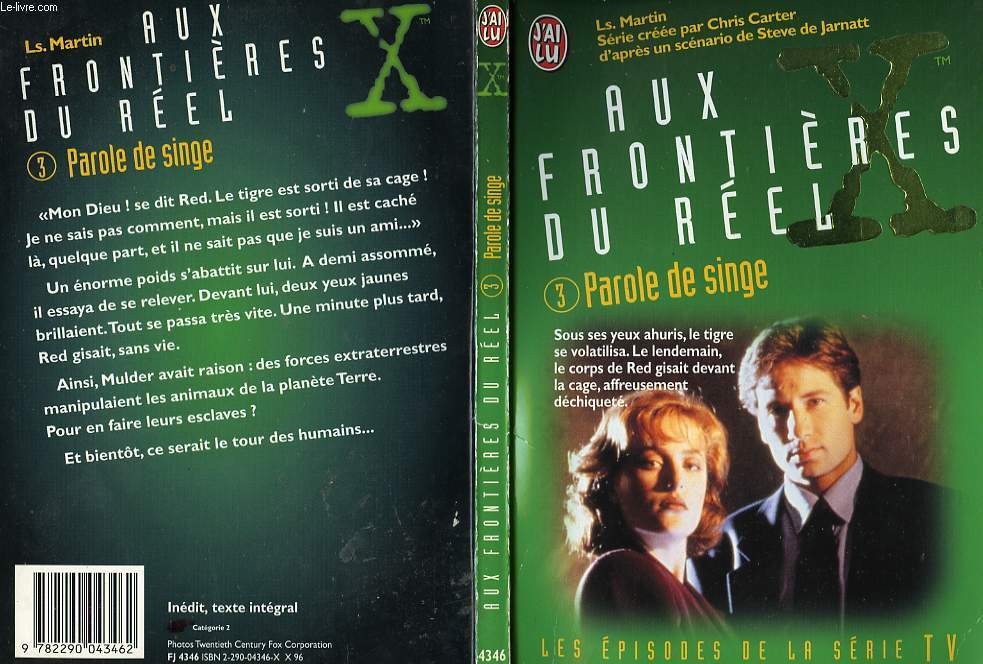 Domestic Engineering, Game Theory, Psychology
Domestic Engineering, Game Theory, Psychology  20 Comments
20 Comments Pride and Prejudice
My nine-year-old son Connor finishes the partial hospitalization program that saved his life this spring on Friday. He’ll return to school, and his beloved friends and teachers and staff, for the last eleven days of the year. It’ll be a lovely reunion–he’s determined to surprise them on Tuesday–and he’ll get to show off the amazing new self-control and trigger management he’s developed, in a manageable, boundaried time period.
As part of his evaluation and treatment in the program, Connor was tested on a wide battery of skills and scales. Most irritating of these tests was a tear-your-hair-out boring attention test that required TWELVE FULL MINUTES of participation to determine a baseline. We laughed at the irony of his twice quitting an attention test because it bored him, but as soon as he tried it with someone to tell him to keep going, the test revealed no attention span issues.

Connor's first-place winning science fair project this year, about predicting compressive strength of materials based on their atomic structure.
Equally unsurprising to us were the results of his IQ test. He scored 136. Now, officially, there’s no “cutoff” for “genius level” anymore in the updated IQ scoring, but 136 puts him into the 99th Percentile for kids his age. In other words, only one percent of nine-year-olds score higher than that. His vocabulary and reading level is that of a 12th grader. According to a new study, that’s two grades higher than the average of the U.S. Congress.
This kid is staggeringly intelligent. Which comes as news to absolutely no one who’s ever met him. I feel far less proud than affirmed. These scores only quantify the bar that we’ve always felt we have to rise to as his parents. The doctor who evaluated him repeatedly emphasized how unusual Connor’s mind really is–the words “exceptional,” “exceed,” and “excellent” appear frequently throughout the write-up, and he urges several times that Connor receive gifted and talented services.
What did shock us in this evaluation was the statement that immediately followed the quantitative elements: “Connor indicates that he enjoys role-play games, which I would strongly advise against, given how these activities can result in him being more obsessed with fantasy than reality. Connor should be devoting his time and effort to normal activities socially, recreationally, and athletically that would be pursued by a nine-year-old.” Further down, he returns to this point: “Repeatedly, I witness children like Connor becoming consumed with fantasy and role-playing games, derailing their social and emotional development and ignoring ‘normal’ endeavors. The result is a pattern of unusual or atypical interests that ultimately are not shared by their peers, causing them to be viewed as unusual, odd, or atypical and, therefore, contributing to social rejection and emotional alienation.”
My first reaction was, “Holy crap, he thinks geeks are pathetic.”
 I saw the Darling Husband’s hackles rise as he read, though he channeled it into humor, since the therapist who gave us the papers wasn’t the one who did the evaluation. Instead, he suggested that they give the doctor a call and tell him what Connor’s dad does for a living.
I saw the Darling Husband’s hackles rise as he read, though he channeled it into humor, since the therapist who gave us the papers wasn’t the one who did the evaluation. Instead, he suggested that they give the doctor a call and tell him what Connor’s dad does for a living.
We shared a laugh at the time, with Connor in the room and unaware of what the papers said, but we were shocked and bothered by the obvious bias in the evaluation, and how utterly dissonant it was with both of our life experiences. How could anyone think such a wonderful hobby was destructive and alienating?
For both of us, fantasy literature and roleplaying games were the ultimate sandbox, an environment finally big enough for the universes our minds could imagine. Sci-fi and fantasy, both in prose and comic books, gave us colorful and expansive vocabularies that challenged us, in the days of stultifying spelling tests and reading assignments that left us cold. Games gave us math problems we wanted to do. They gave us new friends at home and around the world, hours of solo and group entertainment, and eventually, roleplaying games gave us each other. They are our hobby, and our work, and now our legacy to our children.
We understood the doctor’s concern that, if Connor was only into media far beyond his peers’ comprehension, he’d have no common interests with them. But what’s “normal” for a nine-year-old? Chess? No, no chance of obsession there (ahem, paging Bobby Fischer). Baseball? Just what he needs to stay away from unsociable statistics (or not). Guns? That can’t possibly turn out badly. In fact, I’d like someone to tell me what subjects are, in fact, more normal for a nine-year-old American boy in 2012 than heroes, monsters, superheroes, Star Wars, LEGO, and XBox games?
Sure, we’ve known our share of people who couldn’t function well socially in contexts that excluded their primary enthusiasm. Every joke refers to a D&D stat, or a video game plot, or a Monty Python sketch. Every anecdote ties back to a Star Trek episode. And yes, autistic kids get fixated and study the everlasting hell out of what they like. Some days, it’s all they can talk about, and that can be off-putting to other kids who don’t have the sheer bloodyminded endurance they do. But that’s not the vast majority of today’s geeks and gamers, and it’s certainly not Connor.
Cam and I will take some credit for keeping his interests wide. Every time he finishes a book, movie, or TV series he’s thoroughly enjoyed, we’ve got three new things racked and ready to suggest. So you liked Star Wars, did you, kid? Here, meet this guy called Indiana Jones. Muppets tickled your fancy? Fantastic–watch this Wallace and Gromit short. Harry Potter and Doctor Who are pretty awesome, aren’t they? Let me tell you about my friends Sherlock Holmes and Lewis Carroll. And the same lack of inhibition that sometimes leads Connor to say tactless or oblivious things allows his passion and enthusiasm for his favorite things to bubble over giddily, and it’s absolutely irresistible. He’s a trendsetter among his peers. They don’t tell him he’s weird for liking what he likes–they want to know what’s got him so excited.
I know the kids around him won’t always be as forgiving of his differences. But the age when that happens was exactly when Cam and I found roleplaying games, and we weren’t alone. Neither will he be. In fact, he’s likely to be in demand as a creative, versatile gamemaster with deft control of rules and narrative, and a bag full of hacks and tricks. Heavens know, he’s learning at the feet of The Master.
We want to let this doctor know that we respect his experience and knowledge, but in this area, he’s got it flat wrong. Games knit society closer together. Connor’s entire existence, and his loving home, come from the power of those stitches. His whole life, since before he was even born, he’s been on the receiving end of love and support from the friends we’ve made through games. He’s already discovered the delight and the challenge in them, and he’s learning social skills in a safe, welcoming environment, in the community of gamers.
How on earth could he grow up healthier without all that?

 But she was right. Nicolas was a real live French gamer guy. I thrilled him in our first meeting by having Secret Knowledge. We were talking about TV shows, movies and books we liked, and he asked if I watched “Aux Frontières du Réel,” or “On the Frontiers of Reality.” I said I didn’t know it, was it French? “Non, non,” he insisted, and reached for a book. The cover explained it all—behind the French title was a distressed, typewriter-style X. “Oh,” I explained in French, “In America it’s called ‘The X-Files.’” “That explains everything!” he exclaimed. “I always wondered why that X was there!”
But she was right. Nicolas was a real live French gamer guy. I thrilled him in our first meeting by having Secret Knowledge. We were talking about TV shows, movies and books we liked, and he asked if I watched “Aux Frontières du Réel,” or “On the Frontiers of Reality.” I said I didn’t know it, was it French? “Non, non,” he insisted, and reached for a book. The cover explained it all—behind the French title was a distressed, typewriter-style X. “Oh,” I explained in French, “In America it’s called ‘The X-Files.’” “That explains everything!” he exclaimed. “I always wondered why that X was there!” I’d only seen Doctor Who played by Tom Baker on PBS, when I was about five years old. What I’d seen, I didn’t really remember, except, of course, the scarf, and several aliens that looked like upended rubbish bins on wheels. I’ve become a rabid fan since the 2005 reboot, and there’s no doubt I would’ve enjoyed the game more, knowing what I know now.
I’d only seen Doctor Who played by Tom Baker on PBS, when I was about five years old. What I’d seen, I didn’t really remember, except, of course, the scarf, and several aliens that looked like upended rubbish bins on wheels. I’ve become a rabid fan since the 2005 reboot, and there’s no doubt I would’ve enjoyed the game more, knowing what I know now.

 The second male character I played was in a con game, but he’s lodged in my memory (and possibly those of other players) as firmly as any character in an extended campaign. My friends Lydia and Rob had raved about the fantastic sessions of
The second male character I played was in a con game, but he’s lodged in my memory (and possibly those of other players) as firmly as any character in an extended campaign. My friends Lydia and Rob had raved about the fantastic sessions of  And I’ve never played Goldmoon in a run-through of the Dragonlance adventures that didn’t make me wonder why Goldmoon and Riverwind didn’t take their toy and go home. In one particularly memorable campaign, Goldmoon met the rest of the companions as they punched Flint repeatedly, in an effort to render him senseless so they could cross the river. I’ve got lots of problems with the character, but frankly, I’ve never been able to get past that first, most essential obstacle.
And I’ve never played Goldmoon in a run-through of the Dragonlance adventures that didn’t make me wonder why Goldmoon and Riverwind didn’t take their toy and go home. In one particularly memorable campaign, Goldmoon met the rest of the companions as they punched Flint repeatedly, in an effort to render him senseless so they could cross the river. I’ve got lots of problems with the character, but frankly, I’ve never been able to get past that first, most essential obstacle.



